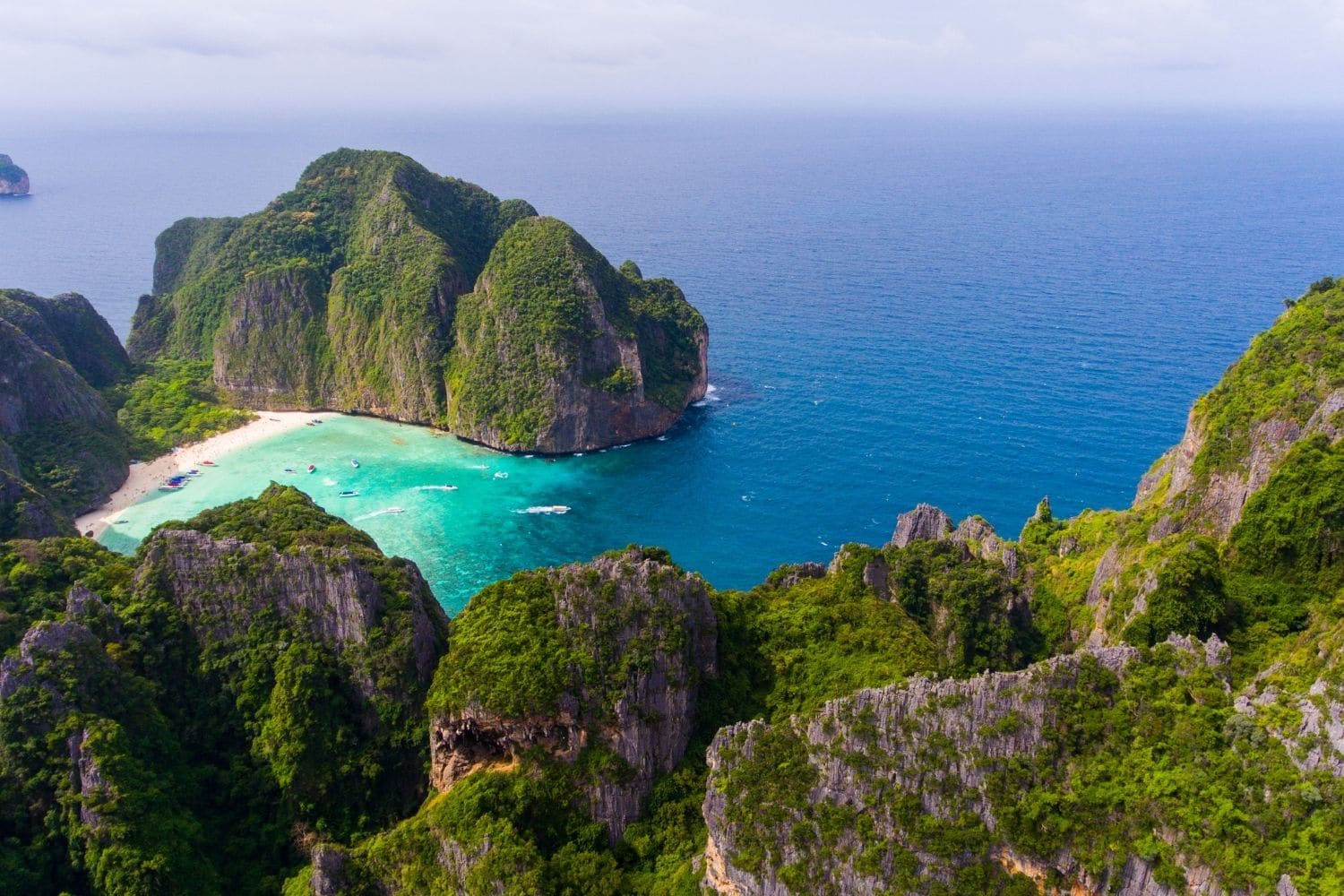Maya Bay Now Open For Business
Share:
The popular tropical island cove in Krabi province Maya Bay finally reopened for tourists on January 1 after a 3-year shutdown to restore the beach’s white sand and marine life.
In June 2018, officials closed the bay to clean the beach and rehabilitate the coral reefs within the area. Initially intended to be a four-month closure, authorities decided to shut the bay for good in October of that year to give Maya Bay more time to recover from the consequences of over-tourism.
The bay is located in Krabi province’s popular Phi Phi Islands and is part of Phi Phi Lei Island, which is part of Hat Noppharat Thara-Mu Ko Phi Phi National Park. Maya Bay was made popular by Leonardo DiCaprio in the 2000 dark romance picture The Beach. Millions of visitors have come to the area to experience the cinematic paradise.
Before its closure, The Guardian stated that the 250m long, 15m wide beach was attracting up to 200 boats or approximately 5,000 tourists daily. Such numbers proved unsustainable for the Andaman Sea’s crown jewel with 80% of its coral reefs destroyed by boats, garbage, and chemicals coming from tourists’ products like sunscreen.
Throughout its long closure, vessels were permitted to anchor outside the bay for visitors to take photographs. Maya Bay underwent restoration whereas the beach was cleaned, planting additional plants and trees, and transplanting over a thousand healthy corals to rebuild the damaged parts of the bay.
Authorities decided to reopen the bay to a few tourists in early 2021 to help the area recover from a year of the pandemic. Still, the beach remained closed.
According to Lonely Planet, the bay is now accessible from 10 a.m. to 4 p.m., and tourists can hire a boat in 1 of 8 shifts limited to 300 persons each daily for a maximum of 3,000. For sustainable tourism, boats are prohibited to anchor in the bay. Instead, they can dock at a new floating pier beyond the cliffs, and tourists are only permitted to swim in an assigned area. However, many tourism analysts believe that tourist visits will surpass the estimated numbers during peak periods and soft enforcement of the restrictions.
While the bay has reopened, its rehabilitation is far from complete. Due to the poor growth rate of coral which is approximately 0.5 cm per year, it will take some time for the marine ecosystem to recover completely. Tourists are urged to respect the bay’s natural beauty by following the “Leave No Trace” policy which includes proper waste disposal and using chemical-free sunscreen.
Source: The Guardian, Lonely Planet
For more information on how to get into Thailand hassle-free using a Thailand Elite Visa, CLICK HERE. Apply now and get a free 3 months visa extension.
